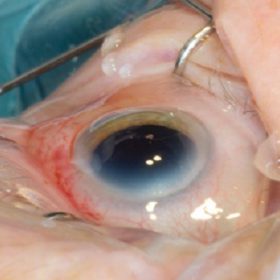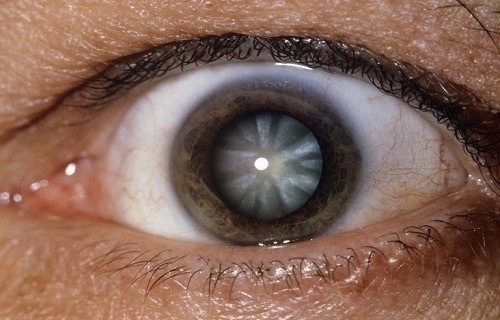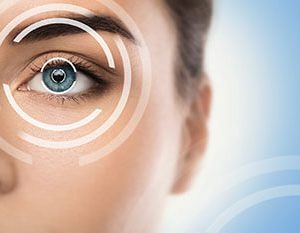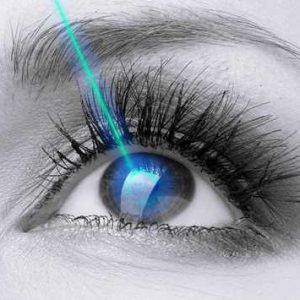The best treatment for cataracts in Iran + Pre and post operation care
Cataract is a dangerous disease that causes vision loss; as the age increases, the likelihood of the disease increases.
Cataract is a type of eye disease that occurs for a variety of reasons; blurry vision is the starting point of the disease, and as the lens becomes darker and opaque, it disrupts the eye’s vision, fortunately cataract is often easy to fix with surgery.
Cataract is a dangerous disease that causes vision loss; with age, the likelihood of this disease is increased, it should be noted that the disease is not caused by overuse of the eye, cataracts are not cancers, it won’t contagion from one eye to the other eye, it will not cause irreversible blindness and the only way to cure it is surgery.

All about cataract / how fast does cataract develop?
Congenital and Acquisitive Causes of Cataracts
Cataract is a disease that blur the lens and gradually causes losing sight; this dangerous disease can be congenital or acquisitive; congenital cataract can be caused by infections during pregnancy such as rubella, some congenital diseases such as diabetes or medication taken during pregnancy.
Acquisitive causes of cataract include hit on head and eye, chemicals hurting eyes, prolonged exposure to infrared and ultraviolet radiation such as sunlight, malnutrition, long-term use of some drugs such as cortisone, some diseases such as diabetes and glaucoma.

Wrong ideas about cataract
Blurred vision, color fading, light sensitivity, night vision problems, double vision, frequent changes in eyesight number are symptoms of cataract; there are misconceptions about cataract, some people think it may be caused by a curtain on the eye.
Surgery is the only way to cure cataract
The only way to cure cataract is surgery; in the past the surgeon corrected the lens when it was completely opaque and corrected the vision by glasses; but it is better to have surgery before the lens is fully firm; Mildly, changing your glasses may temporarily solve your problems.
Avoiding sunlight may help prevent or slow down the progression of cataract; sunglasses that absorb ultraviolet light, or medical glasses with an ultraviolet coating to protect the eye.

In cataract caused by age increase, the criterion of surgery is the amount of vision; in fact, surgery is performed when impaired vision interferes with their daily lives; it’s rare that not doing surgery leads to lens swelling, glaucoma, and hypertension in the eye. In this cases cataract surgery should be performed urgently. In the case of congenital cataract in children it is necessary to do a surgery to prevent amblyopia.
During surgery, the opaque lens is removed and, where possible, an eyepiece lens with the same power is implanted in the same location, or sometimes due to a patient’s eye problems it is placed in front of the iris during lens surgery.
Opaque Lens Extraction Techniques
A: The opacified lens extraction techniques can be performed in two ways: first one is by a large 2-4mm incision and removing the contents of the opaque lens and intraocular lens insertion, in which remove the sutures within will be removed in three months.
The other procedure is performed with a small 2.5mm incision and the lens contents are removed by the Fico machine, which has approximately similar surgical results and sutures are not usually needed.
When should cataract surgery be performed?
Mahdieh Nasrollahi, an ophthalmologist in an interview with a reporter of the Health Journal of the Young Journalists Club, said: “When cataract reduce vision and the person is unable to perform daily activities, they should have the surgery; when cataract occur the eye lens becomes thick and opaque and light cannot pass through it easily, causing blurred vision.
For cataract surgery, you need to see if you have enough vision to do your activities easily? Drive safely? Can you easily read or watch TV? Can you handle your daily activities like cooking, shopping, homework and eating your medication without any problem? After answering these questions and based on your problems, you and your ophthalmologist can decide when to have surgery.
How is cataract diagnosed?
Examination by an ophthalmologist can determine the presence and extent of cataracts, as well as any other problems that may reduce vision or discomfort; other causes besides cataracts, specially problems with the retina or optic nerve, may also decrease vision. If there are problems like this, vision may not be completely cured with cataract surgery.
If these problems are severe, cataract surgery may not even improve vision; your ophthalmologist can tell you how likely it is that you have these problems in your eyes.

It is not possible to accurately predict the rate of cataract development
The speed of cataract formation varies among individuals and may even vary between the eyes; most cataracts develop gradually over a few years, but other cataracts, especially in young people or people with diabetes can cause losing sight quickly and within a few months, so it is not possible to accurately predict the rate of cataract progression.
Cataract surgery is usually performed with local anesthesia, the opaque lens is removed from the eye; in most cases a permanent lens is inserted into the eye instead of the natural lens, which will remain in your eye forever, and won’t be ruined or corrupted, the ophthalmologist performs this delicate surgery with a microscope, sophisticated instruments and modern technology.
Lens implantation or transplantation by a trained surgeon will not impose further complications on the patient, but will make the patient’s eyesight very good after surgery and the patient won’t need thick, heavy glasses that cause many problems.
Cataract surgery is a very successful procedure, she noted: In more than 90% of cataract surgeries, vision improves unless there is a problem with the cornea or the optic nerve, in this cases complications may occur during or after surgery that decrease eyesight.
Cataract Surgery in Iran – Frequency of Cataract in Iran – Cataract surgery – Iranian Cataract Surgery Survey –
Eye diseases
Eye diseases
Eye diseases




